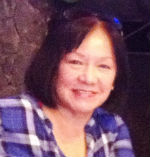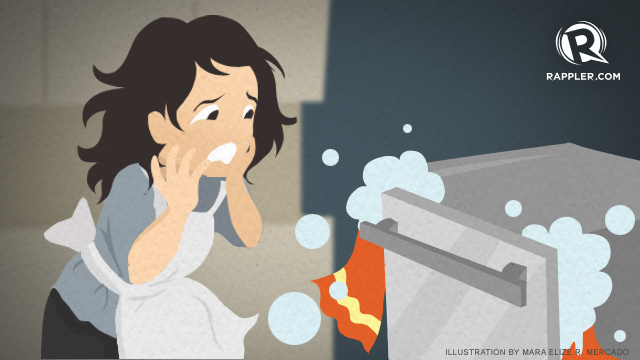SUMMARY
This is AI generated summarization, which may have errors. For context, always refer to the full article.
 It was all about the American dream – the whole shebang including the white picket fence. I wasn’t content with just reading and hearing about it so with what little money I had and a loan provided by a relative, I was finally on my way to Los Angeles, CA.
It was all about the American dream – the whole shebang including the white picket fence. I wasn’t content with just reading and hearing about it so with what little money I had and a loan provided by a relative, I was finally on my way to Los Angeles, CA.
The year was 1981 and at that time, it was easy to disappear in the maelstrom of nationalities all wanting the same dream. With just a passport, one could get a driver’s license and a social security card, albeit with the words “Not Valid for Employment” written across. Employers did not ask to see your social security card, just as long as you had a number written on your application form. Jobs were easy to find back then and with my experience, I was able to work after a week.
Bubbles, bubbles everywhere
A friend was kind enough to rent out one of her rooms to me and even let me drive one of her cars to work until I was able to buy my own. When not at work, I helped around the house which was easy enough because everything was electric – or so I thought, until I loaded the dishwasher with regular dishwashing soap and bubbles started coming out of the machine onto the floor. Horrified, I tried to stop the bubbles by covering the sides with dishtowels, which was like putting band aid on your neck after your aorta has been severed.

Look behind you
I have been driving in the Philippines since I was 20, so when I went to the Department of Motor Vehicles to take my driving test, I felt confident that I would nail it, no problem. In the Philippines, you look at the rear view mirror or your side mirrors to see if it’s safe to pass another car or to drive away from the curb.
In the US, if you’re passing from your left, first you look at your rear view mirror, then your left side mirror, and then you actually turn your head over your shoulder to the left to make sure it’s safe to pass or drive from the curb. You do the same thing if you’re passing a car to your right. The reason for the head turn is there are blind spots in the car that you can’t see just by looking at the side mirrors.
In the Philippines, when a pedestrian steps onto the street from the sidewalk, you yell “hoy, tanga!” (hey, stupid!) or some other expletives at them because they’re supposed to let you pass first. In the US, pedestrian is king so as soon as he steps onto the street, all vehicles must stop until he safely arrives at the other side of the street. There’s no honking unless you want the finger from the pedestrian and the other drivers. A stop sign meant complete stop, not rolling stop, not half stop, and one never stops halfway across a pedestrian lane.
Idioms, idioms
I read a lot so you can say I was familiar with idioms. I was, however, unprepared for real life chatter so when two of my office mates were fighting and one said, “You can put your *$%^ where the sun don’t shine,” I wasn’t quite sure if he meant Alaska. And when another said, “don’t let him rattle your cage,” I was at a loss. I’m used to hearing, “How are you? and to answer back, “I’m fine thank you, and you?”
So the first time I heard, “How’s it going?” and another one answered, “It’s going” I didn’t know what was going where. After a while I got used to greeting people with just “hey” and being greeted back, “hey yourself.”
My supervisor took it upon himself to “Americanize” me so he would throw idioms at me out of the blue. Take for example the idiom “Catch 22.” What the heck is that and why should it mean a “dilemma or difficult circumstance from which there is no escape because of mutually conflicting or dependent conditions.” I see no connection to the word “catch” and the number 22. American English is a colorful language that’s for sure.
Real obstacles
Please don’t get me wrong. I’m not trivializing the obstacles I faced when I first moved to the US I had my share of culture shock and the 80s were not really known for equal opportunity anything. I remember vacationing in Maryland with cousins and going into a crab shack and being stared down by white men.
I also remember making a wrong turn and ending up in Compton and being stared down by black men. There’s nothing more demeaning than the feeling that there are people who think you are not equal to them because of the color of your skin. But in all honesty, didn’t I feel that way towards the indigenous people in the Philippines?
I, too, looked at skin color and judged so I was no better than these men who stared me down. Working in a multi-racial company helped me overcome my own prejudices. Our individual differences became our collective asset so that when we had impossible deadlines to meet, we worked together symbiotically to achieve the impossible.
After the novelty faded, loneliness crept in – and I think this is the biggest obstacle one faces in a foreign country. No matter how bad the situation was in the Philippines at that time, I longed to be back even for just a while.
I guess we all have our own way of dealing with this emotion. Mine was to work, work, work. I took on another job so I was working 16 hours a day. Dinner was a quick drive through at McDonald’s for a cheeseburger on the way to my second job. Gradually, things got better – I settled into a routine and found new friends at work.
I was raised and educated a Catholic and things were hammered into my head that are not that easy to discard. One of them was that Jesus was killed by the Jewish people and so they are to be dealt with like pariahs. My catechism teacher forgot to mention that Jesus was Jewish. I took it as a sign from heaven that my first American friend was a Jewish lady named Clara. She was kind, patient, and a very good cook – she taught me how to eat bagels with cream cheese and lox.
Did I ever regret moving to another country? Not for one minute. Would I recommend it? Absolutely! Living in another country and being open to absorbing other cultures while retaining one’s own identity is a balancing act but the reward is worth the trip. – Rappler.com
Monin Muriera-Navarro lived and worked in the US for more than 30 years. She held the position of administrative manager for an engineering and environmental consulting corporation. She retired in 2010 and lives in Baguio City.
#BalikBayan is a project that aims to harness and engage Filipinos all over the world to collectively rediscover and redefine Filipino identity.
Add a comment
How does this make you feel?
There are no comments yet. Add your comment to start the conversation.